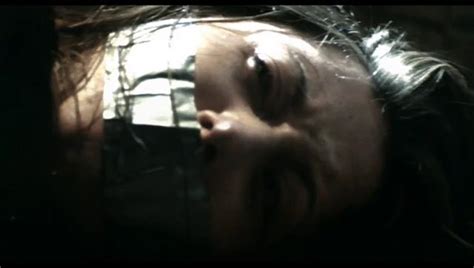A Quote by Clarissa Pinkola Estes
When a woman is frozen of feeling, when she can no longer feel herself, when her blood, her passion, no longer reach the extremities of her psyche, when she is desperate; then a fantasy life is far more pleasurable than anything else she can set her sights upon. Her little match lights, because they have no wood to burn, instead burn up the psyche as though it were a big dry log. The psyche begins to play tricks on itself; it lives now in the fantasy fire of all yearning fulfilled. This kind of fantasizing is like a lie: If you tell it often enough, you begin to believe it.
Quote Topics
Anything
Anything Else
Because
Begin
Begins
Believe
Big
Blood
Burn
Desperate
Dry
Else
Enough
Fantasy
Fantasy Life
Far
Feel
Feeling
Fire
Frozen
Fulfilled
Her
Herself
Instead
Itself
Kind
Lie
Life
Life Is
Lights
Like
Little
Lives
Log
Longer
Match
More
Now
Often
Passion
Play
Pleasurable
Psyche
Reach
Set
She
Sights
Tell
Than
Then
Though
Tricks
Up
Were
Woman
Wood
Yearning
Related Quotes
Lyra learns to her great cost that fantasy isn’t enough. She has been lying all her life, telling stories to people, making up fantasies, and suddenly she comes to a point where that’s not enough. All she can do is tell the truth. She tells the truth about her childhood, about the experiences she had in Oxford, and that is what saves her. True experience, not fantasy - reality, not lies - is what saves us in the end.
She realized how many of her beliefs were either unrealistic or belonged to her deceased parents and her ex-husband. She also realized that her expectations for herself and others were sometimes too rigid. She was trying to live up to what everyone else said was best for her, which made her depressed and hard to be around at times. Once she changed her beliefs about herself and others, she began to smile more and enjoy life.
Were all first loves like that? Somehow she doubted it; even now it struck her as being more real than anything she'd ever known. Sometimes it saddened her to think that she'd never experience that kind of feeling again, but then life had a way of stamping out that intensity of passion; she'd learned all too well that love wasn't always enough.
Because no, I didn’t push her away. I didn’t add to her pain or do anything to hurt her. Instead, I left her alone in that room. The only person who might’ve been able to reach out and save her from herself. To pull her back from wherever she was heading. I did what she asked and I left. When I should have stayed.
The girl was lighter without her heart. She danced barefoot on the hot roads, and her feet were not cut by the glass or stones that studded her way. She spoke to the dead whenever they visited her. She tried to be kind, but they realised that they no longer had anything in common with her, and she realised it, too. So they went their separate ways.
Perhaps I will die too, she told herself, and the thought did not seem so terrible to her. If she flung herself from the window, she could put an end to her suffering, and in the years to come the singers would write songs of her grief. Her body would lie on the stones below, broken and innocent, shaming all those who had betrayed her. Sansa went so far as to cross the bedchamber and throw open the shutters ... but then her courage left her, and she ran back to her bed, sobbing.
One day I'll give birth to a tiny baby girl and when she's born she'll scream and I'll tell her to never stop I will kiss her before I lay her down at night and will tell her a story so she knows how it is and how it must be for her to survive I'll tell her to set things on fire and keep them burning I'll teach her that fire will not consume her that she must use it
In fact her maturity and blood kinship converted her passion to fever, so it was more affliction than affection. It literally knocked her down at night, and raised her up in the morning, for when she dragged herself off to bed, having spent another day without his presence, her heart beat like a gloved fist against her ribs. And in the morning, long before she was fully awake, she felt a longing so bitter and tight it yanked her out of a sleep swept clean of dreams.
She rested her head against his and felt, for the first time, what she would often feel with him: a self-affection. He made her like herself. With him, she was at ease; her skin felt as though it was her right size.. It seemed so natural, to talk to him about odd things. She had never done that before. The trust, so sudden and yet so complete, and the intimacy, frightened her.. But now she could think only of all the things she yet wanted to tell him, wanted to do with him.
... there had been the two little boys. Now they were gone, too. They loved her and called her and sent her e-mails and would still snuggle up to her to be petted when they were in the mood, but they were men, and though they would always be at the center of her life, she was no longer at the center of theirs.
As though she had entered a fable, as though she were no more than words crawling along a dry page, or as though she were becoming that page itself, that surface on which her story would be written and across which there blew a hot and merciless wind, turning her body to papyrus, her skin to parchment, her soul to paper.
She sat leaning back in her chair, looking ahead, knowing that he was as aware of her as she was of him. She found pleasure in the special self-consciousness it gave her. When she crossed her legs, when she leaned on her arm against the window sill, when she brushed her hair off her forehead - every movement of her body was underscored by a feeling the unadmitted words for which were: Is he seeing it?
And then she said nothing else, for Henry put his arms around her and kissed her. Kissed her in such a way that she no longer felt plain, or conscious of her hair or the ink spot on her dress or anything but Henry, whom she had always loved. Tears welled up and spilled down her cheeks, and when he drew away, he touched her wet face wonderingly. "Really," he said. "You love me, too, Lottie?
Yet there were times when he did love her with all the kindness she demanded, and how was she to know what were those times? Alone she raged against his cheerfulness and put herself at the mercy of her own love and longed to be free of it because it made her less than he and dependent on him. But how could she be free of chains she had put upon herself? Her soul was all tempest. The dreams she had once had of her life were dead. She was in prison in the house. And yet who was her jailer except herself?







































